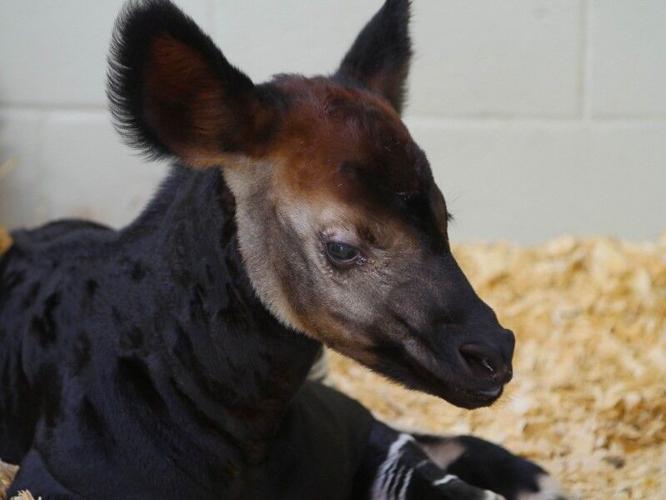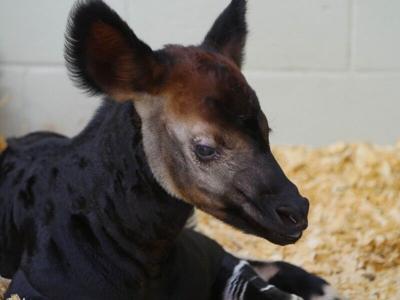A rare okapi calf at the Audubon Nature Institute died just eight months after her widely celebrated birth, Audubon officials announced Thursday.
The calf, Kaya, was being treated for a developmental issue that severely affected her growth plates, bones and joints and made it painful for her to walk, Audubon officials said in a press release.
"We always strive to give the best quality of life to all the animals under our care," said Michelle Hatwood, general curator of the Freeport-McMoRan Audubon Species Survival Center. "Kaya’s situation was especially heartbreaking for the staff that cared for her. Very few okapi births occur each year, so we are saddened for her loss and the loss to the national population."

Kaya was born on Sept. 28, 2022, the first calf of 6-year-old mom, Asili, and 13-year-old dad, Kikari. While okapi calves have a high mortality rate, especially for first-time moms, animal keepers were excited to see Asili step up to her motherly role quickly, Audubon said.
RELATED: Take a first peek inside the newly renovated Audubon aquarium
Okapi are an endangered species and are considered extremely rare. They are shy, solitary animals found only in the Democratic Republic of Congo and very little is known about their natural history, officials said.
Kaya’s health problems became apparent a couple of months after her birth, according to Audubon.
The institute's animal health care team worked closely with orthopedic specialists at the LSU School of Veterinary Medicine and national okapi experts to diagnose and improve the calf's condition. But veterinarians determined during Kaya's latest appointment that her condition wouldn't improve and she was euthanized, Audubon officials said.
Audubon's senior veterinarian Dr. Bob MacLean said while it's unclear what caused Kaya's deformities, the calf was in obvious pain.
"While we were able to make her more comfortable, she was not growing properly, and her condition was progressively worsening," MacLean said in a press release. "It was a particularly difficult decision to euthanize her given how rare okapi are."
The results of a post-mortem necropsy are pending, Audubon officials said.






